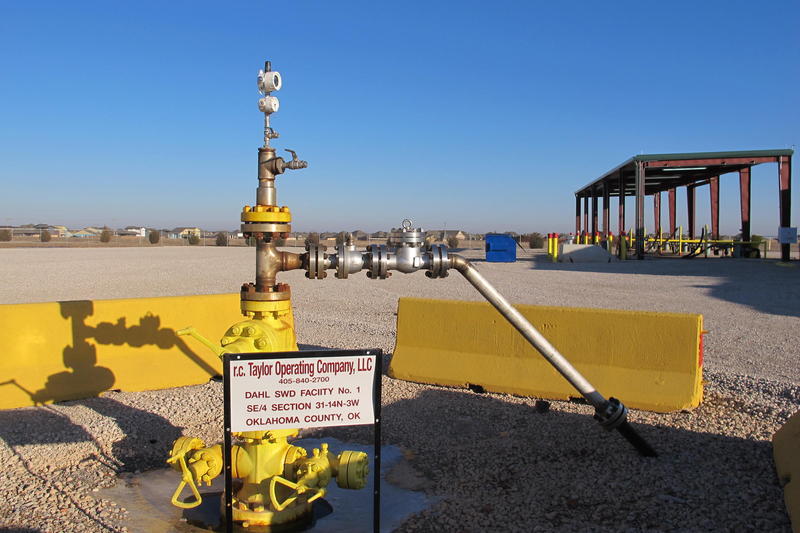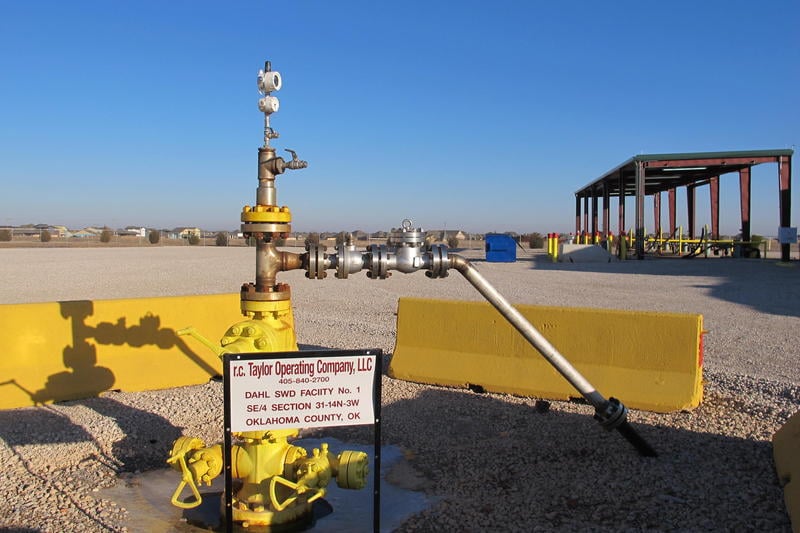A saltwater injection well in Oklahoma. Applications for similar wells in Kansas listed 15-day protest periods when they should have allowed the public 30 days to object. FILE PHOTO / KCUR 89.3
Billions of gallons of water are removed each year from the hydrologic cycle and injected into underground formations thousands of feet below the surface of the earth. Hydrologists agree that there is approximately less than 1% usable water for humans on our planet. With proven enhanced evaporation methods, why continue sending this precious resource underground out of the hydrology cycle?
According to U.S. EPA's figures, they state that over 2 Billion gallons of oil & gas wastewater a day are being injected into 144,000 Class II wells and another 3.2+ Billion gallons of wastewater into 650,000 Class V wells! Without these billions and billions of gallons of water in our hydrologic cycle, could our worst fears possibly come true?
Some of the most recent results attributed to injection wells have been earthquakes miles away from the well, contamination of aquifers, well casing failures, poor record keeping, over-pressurization, and large amounts of hydrochloric acid being poured downhole to unclog the wells further contaminating the injected water. To date, there has been little discussion of the water losses associated with injection wells and the effects of this loss on regional and global climate. However, the EPA just recently held hearings and listened to testimony about this exact issue. The EPA study recently released shows serious concern for keeping pure water in the hydrologic cycle versus sending it below the surface via injection wells which impacts the hydrologic cycle.
Let's begin to openly question the effects of the injection water process and what is best for the hydrologic cycle, instead of sending it deep into a black hole and guessing what the impacts will be. One sustainable alternative to injection of wastewater is to mechanically evaporate it to its purified vapor counterpart. We can at least study and analyze the future sustainability and potential positive impacts on long-term climate conditions. Accelerating wastewater via the natural evaporation process can be a highly valuable tool in a comprehensive wastewater strategy, while at the same time, supporting and promoting the sustainability of our future water supplies above the ground!
Click the following button to learn more about E3’s evaporation works environmentally friendly process of purifying wastewater for as little as $0.12 per 1000 gallons of treated wastewater!





